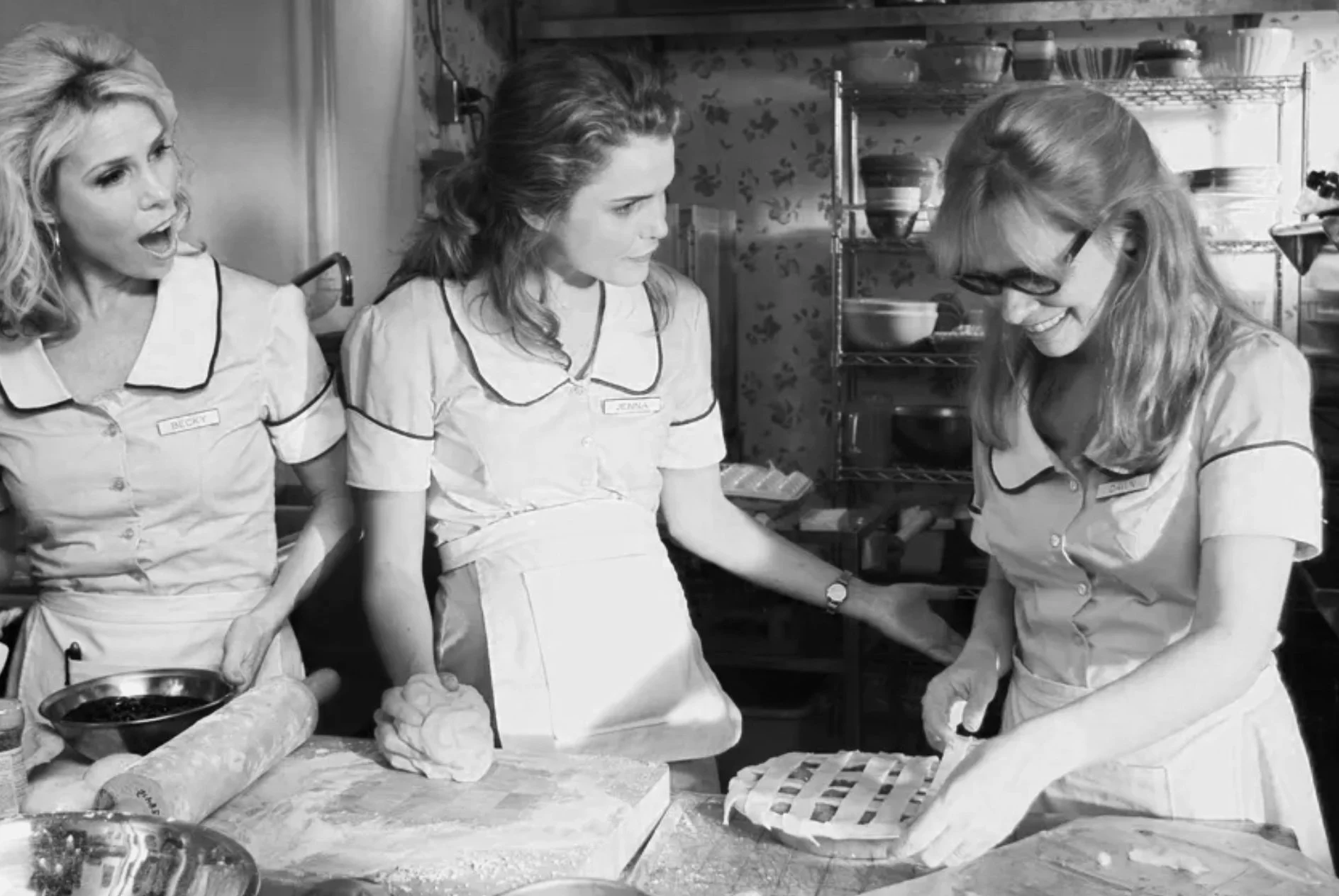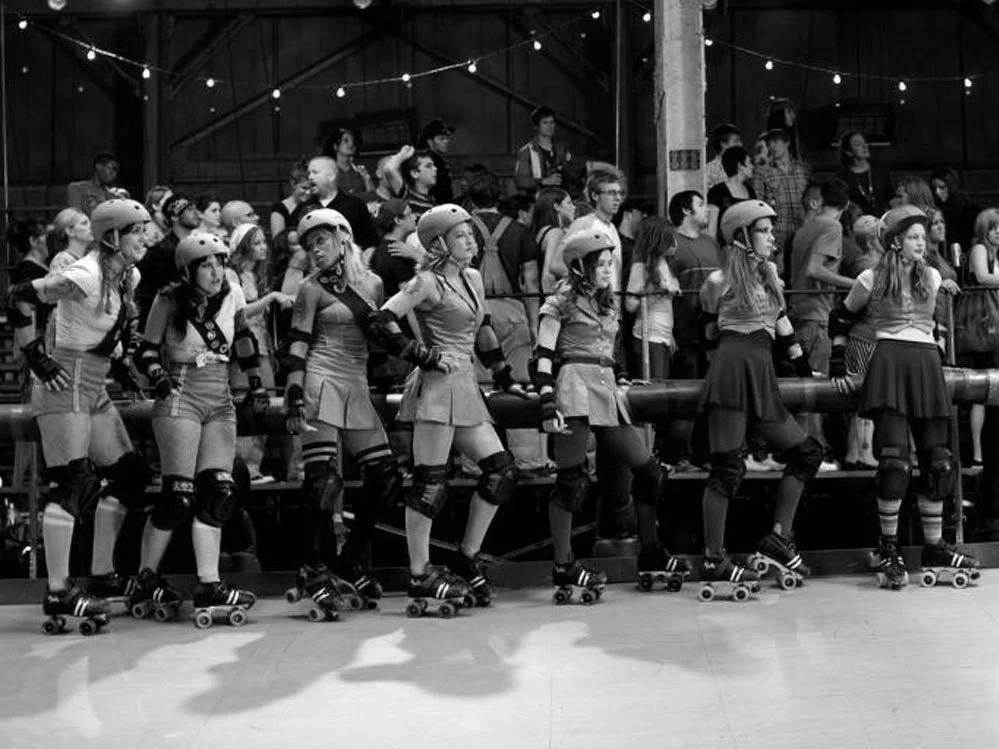This March, I focused my movie-a-day challenge on films directed by women, and there was one thing kept standing out: the way female friendships were portrayed. Not all of them got it right, but the ones that did felt like they were speaking directly to my monkey brain. These weren’t just background relationships or moments of support. They were entire worlds.
And more than anything, they reminded me: girls are really f---ing weird. Real friendships between girls are often messy, chaotic, hyper-specific, and completely unhinged in the best way. The best movies I watched didn’t just acknowledge that—they celebrated it. The worst ones seemed to have no idea.
am i ok? (2022)
I want to start with a movie that, in my opinion, failed at this. Am I OK? is supposed to be about "best friends," but it never makes that friendship feel lived in. There’s no shorthand between them, no sense of shared rhythm, no inside jokes. When they have their big fight (sparked by Jane not telling Lucy that she got a job offer in London), it doesn’t feel like a rupture in something deep. It was just so unrealistic that something so small would rupture such a supposedly deep friendship in that way. It’s not that their conflict is too small; it’s that the love underneath it doesn’t feel real.
There’s a scene where Lucy confronts Jane at her going-away party. It’s supposed to be emotional, but it doesn’t land. Lucy says, “I’m not mad you’re going to London, I’m mad you didn’t tell me,” and the whole thing just feels like the script decided that was a big enough reason to create a falling-out. But it isn’t. At least, not when we haven’t seen the bond it’s meant to be breaking.
Critic Jude Dry called it "pleasant but thin," and said the emotional arc just doesn’t have enough weight. It felt like a movie about a fight, not a movie about a friendship.
“best friends.” sure, ok.
“best friends.” i believe it!!!
booksmart (2019)
Booksmart is one of my favorite movies of all time and remains in my Letterboxd top four. I'm not a fan of rewatching movies but I probably watch it twice a year. Not only does it have a special place in my heart because of how much I relate to the main characters, but the cast! The music! The costumes! Truly a masterpiece.
What makes Molly and Amy’s friendship so special is how real it feels. They don’t just love each other, they orbit each other. They hype each other up in unhinged ways, make up dances in the mirror, speak in accents, cry, scream, and hold each other through it all. They’re so weird, and the movie gets that weirdness right.
When they fight on the sidewalk at the party, it’s one of the most devastating and well-earned emotional moments I’ve seen in a teen movie. The way the music drops out and the camera spins around them in a single take as they scream at each other in front of their classmates—it’s not just for drama. You can feel every piece of the relationship fraying in real time. It’s painful, but you also never lose the sense that these two girls love each other more than anything. That the fight matters because the friendship matters.
You can actually see and experience the emotional buildup: the codependency, the fear of change, the little lies they thought were kindness. But even mid-fight, you know they’ll be okay. Because the love is bigger than the conflict.
waitress (2007)
I was so surprised how much I loved Waitress (5 stars!). I hate romance movies but it blew me away. The romance felt earned and natural, but most of all it was the friendships—and how real they were—that resonated with me so much.
Jenna, Becky, and Dawn hold each other up through everything: abuse, self-doubt, bad decisions, motherhood, heartbreak. They gossip, make jokes, pass notes—but it never feels surface-level. Even when they fight, it doesn't last long because there’s love and concern underneath it. Real, daily, working-women kind of love.
There’s this moment when Becky is having an affair and the others confront her about it. It’s not judgmental, but it’s not brushed off either. There’s concern, frustration, and disappointment—but it doesn’t escalate. It passes, because it’s all happening in this unspoken current of love. It’s real and complicated and forgiving. That moment alone does more emotional legwork than the entire runtime of Am I OK?
What sets Waitress apart is that the love feels baked in (good pun I know, thank you). We actually believe the friendship existed before the movie started and will continue after it ends. When they argue, it’s not the climax—it’s just one of many small, meaningful moments. And even in their quietest moments, their weirdness peeks through—like passing notes in a pie crust.
Writer Andi Zeisler called it a story about "female friendship as both resistance and sanctuary." She got it exactly right.
alarmed but not judging
the original weird girls
daisies (1966)
Daisies really was a trip. If Booksmart is a ride-or-die movie and Waitress is soft sisterhood, Daisies is pure co-dependence. The two Maries are constantly mocking each other, lying, play-fighting, destroying everything around them. They perform for each other more than for anyone else.
But it still feels like love. They never abandon each other. Even as they ruin banquet halls and scam old men and push each other into bathtubs, they’re completely synced. It’s friendship as performance, rebellion, satire.
Carmen Gray called it "a punk explosion of female pleasure and destruction... beneath the absurdity lies a core of emotional truth between the girls."
That’s the difference. Daisies might center on chaos and confrontation, but it never pretends that’s all there is. We don’t need to be told they’re best friends—we feel it. Am I OK? tells us what to believe. Daisies shows us. And it lets the girls be loud, disruptive, bratty, ridiculous. It lets them be weird.
whip it (2009)
The energy between Bliss and her roller derby teammates is raw, rowdy, and full of affection. The girls hit each other on the track and then hug it out. It’s love through action. Pash and Bliss’s best-friendship goes through real strain, especially when Bliss lies to her. But the fight makes sense, and the apology is earned. Their bond has that same Booksmart energy—equal parts chaos and care, with real tension underneath.
One of the most telling scenes is when Pash gets arrested because of Bliss, and the fallout feels messy and real. Pash is hurt, and Bliss knows she messed up. But even as they’re arguing, there’s history there—you can feel it. The apology is emotional but doesn’t feel forced, because we’ve already seen them care for each other so deeply throughout the movie. They joke, they dream, they rage, they ride for each other. It’s not just a conflict—it’s a friendship with texture. It’s goofy and vulnerable and chaotic. You guessed it: weird.
Film critic Claudia Puig called it "a tribute to female bonding and youthful rebellion, Whip It embraces the messiness of growing up and growing apart."
this is truly the gayest straight movie to every exist (maybe second to bend it like beckam)
conclusion
What stuck with me the most this month wasn’t the fight scenes or the reconciliations—it was the weirdness. The private languages. The specific jokes. The ride-or-die-ness. The crying and screaming and hugging all in the same ten minutes. When movies are really about friendship, the fights don’t feel like plot devices. They feel like part of the love.
Because girls are weird. And when movies let them be weird together—really weird, like Miranda Sings voices (iykyk) and unspoken rules and emotionally chaotic bursts of love—that’s when it feels true. Because if you love someone deeply, you’re probably going to fight. You’re also going to show up the next day. That’s what these movies understand.
Thank you to my best friends for giving me such deep love and never abandoning me. This silly little essay goes out to you.





